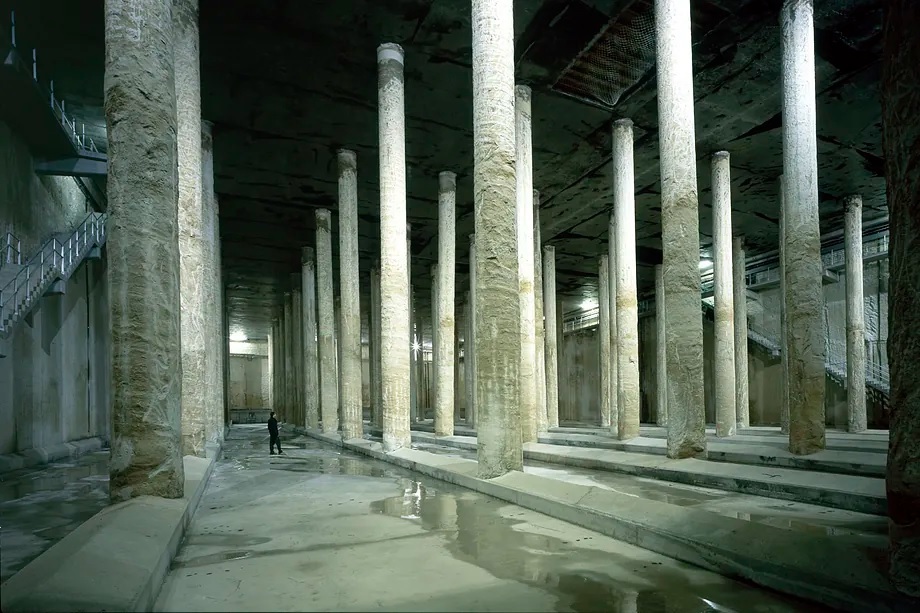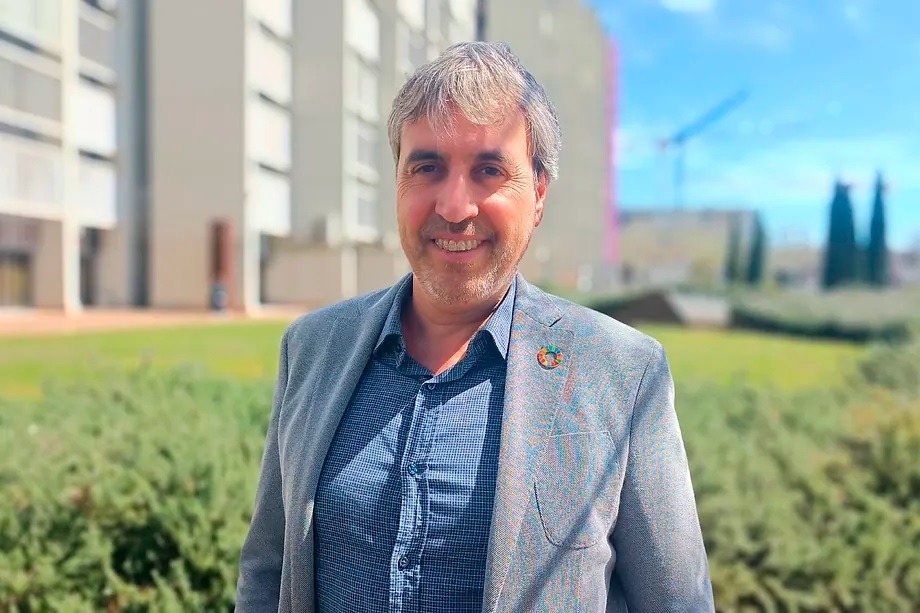The Mediterranean is warming 20% above the global average. 70% of the more than 500 million inhabitants living in its surroundings are concentrated in urban areas. "And yet our cities are not prepared for extreme weather, despite living in the second most affected area by climate change after the Arctic." With his accumulated experience in urban management, leading the "big family" of 80 Mediterranean cities, Josep Canals, Secretary General MedCities, tries to envision these days what the solutions could be to prevent tragedies like the one that occurred in the Valencian Community.
Some of them are already under their feet, like the network of stormwater retention tanks in Barcelona, spread throughout the metropolitan area and capable of absorbing about 500,000 cubic meters of water, which is one of the city's largest "defenses," partly explaining its resilience against floods caused by DANAs.
"These are large underground tanks that allow the diversion of torrential rainwater and prevent streets from turning into rivers," explains Canals with his background as an ecologist, expert in territorial planning, and former mayor of Corbera del Llobregat. "In Barcelona, as in the Valencian Community and in many other parts of the Mediterranean, the space between the mountains and the sea is very short, allowing for large accumulations of water in a short time, and in the vicinity of densely populated areas."
The stormwater tanks in Barcelona (fifteen already in operation and thirty in the project) are also known as storm ponds. Madrid also has its own network, immortalized in the TV series La Casa de Papel. It is one of the alternative solutions to surface channeling and demonstrates that it is possible to combine technology and ecology.
Josep Canals points to another significant achievement in Barcelona against floods, the renaturalization of the Besós River: "What was once a toxic open sewer is now a global model for biodiversity recovery, taking advantage of the channeled riverbed, with a system of cameras and alarms that allows anticipating floods."
We asked Josep Canals if the response to the 2024 DANA in Valencia should be another monumental work like the Plan Sur, the alternative diversion of the Turia River channel after the deadly flood of 1957, which, according to several experts, could have prevented a disaster in the capital like the one suffered by more than fifty municipalities devastated by water. "The response to a tragedy like the one we have seen is usually: let's channel everything," acknowledges Canals. "We forget that a large part of the problem is also the channeling. We have thought that with cement we can control everything, and that's why there was a wave of harsh solutions that turned Spain into an example of developmentalism. But by channeling ramblas and river sections, all we are doing is transferring the problem downstream."
Canals acknowledges being in favor of Nature-Based Solutions (NbS). Among them, preserving river expansion and flood zones, "where open-air reservoirs can also be created to store energy (water) in case of flooding, and then dissipate it."
Stormwater tanks like those in Barcelona, floodable parks like La Marjal (Alicante), permeable pavements, and sustainable urban drainage systems (SUDS) as an alternative to pure asphalt are some of the solutions incorporated into the concept of a sponge city by the Chinese architect Kongjian Yu, who warns that the current urban model "fails in extreme situations" and proposes water retention and filtration measures that serve both to mitigate floods and respond to droughts.
"The concept of reclaimed water has helped prevent supply cuts during the extreme drought we have experienced in Catalonia," recalls Josep Canals. "It is very important for citizens to make the connection between their daily habits and the impact of climate change. People have to understand that restricting private traffic helps reduce emissions; that is, to prevent floods, droughts, and heatwaves from becoming more intense."
Although the first and most urgent, according to Josep Canals, is "to prohibit construction in flood-prone areas." The Secretary General of MedCities warns that perhaps the time has come to consider "relocating entire neighborhoods due to flood risk, as is done in cases of collapses." "Everything has to be adaptable to the new reality," he warns. "What has happened will require a great planning effort with a lot of public money. Preventing now will be expensive, but it will be much more expensive over time, with a cost in human lives that we cannot allow."
Emergency management is another pending issue in Mediterranean cities, and Canals points to the city of Montpellier as a European reference: "The way the emergency was managed in the last DANA was terrible, and there is still a long way to go. There was information to prevent it, and today we have all kinds of devices to alert the population, to prepare them with drills and reaction capacity. It is very important to recognize and enhance the role of municipalities and mayors of small and medium-sized cities, which lack the resources to deal with these situations."
"We live in a relatively small and overcrowded space, in a practically closed sea," concludes the spokesperson for Mediterranean cities. "We share a biome that has always had great seasonal variations, prone to irregular episodes, with periods of drought and major floods. All of this is intensifying with climate change, and we have managed to react in time. We cannot continue to ignore the signs."

